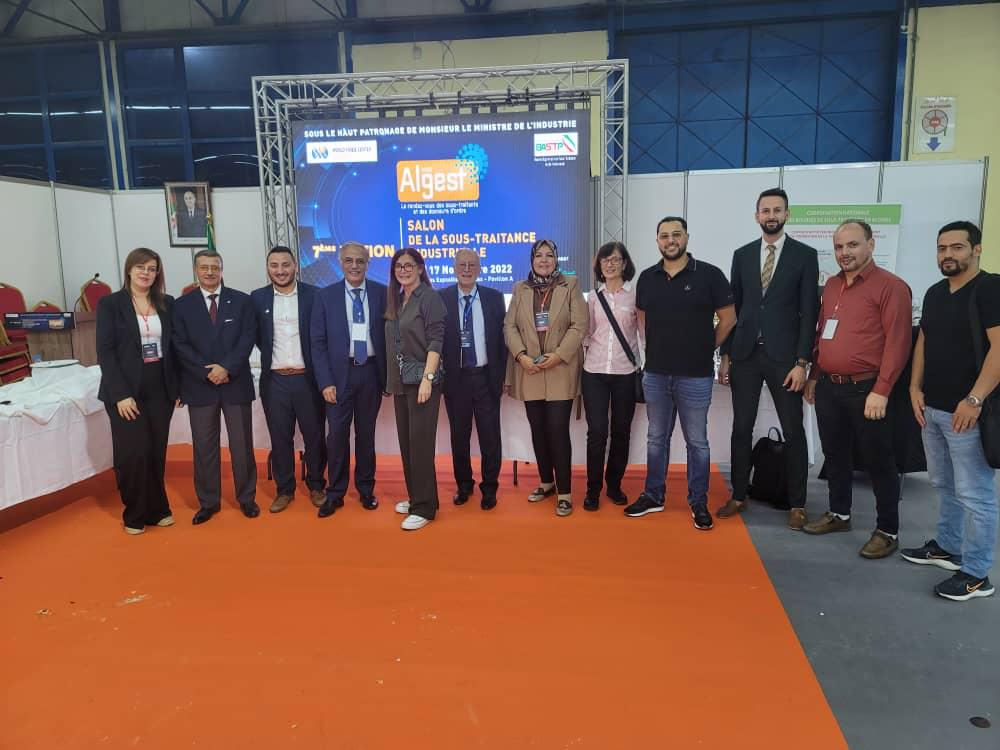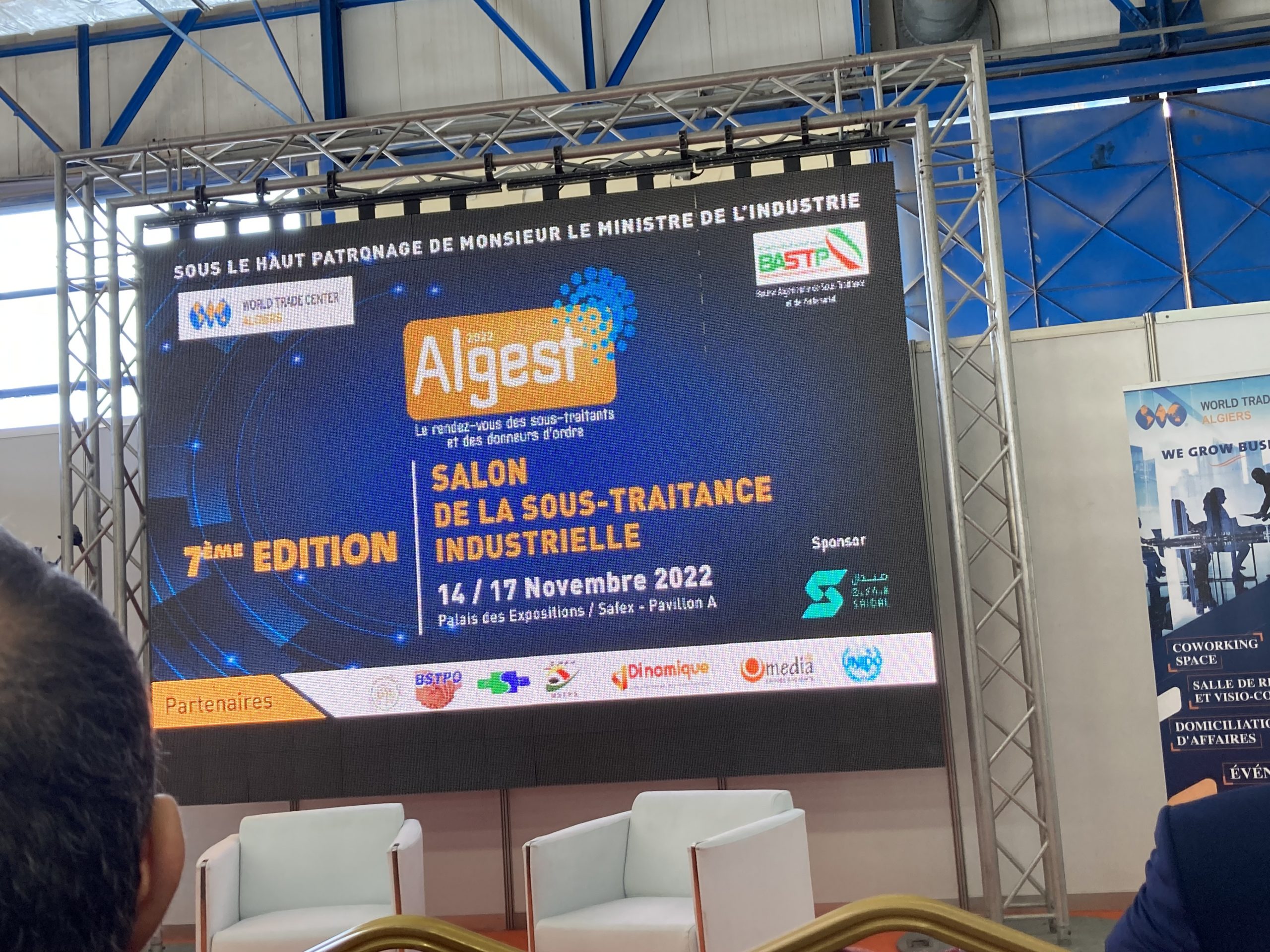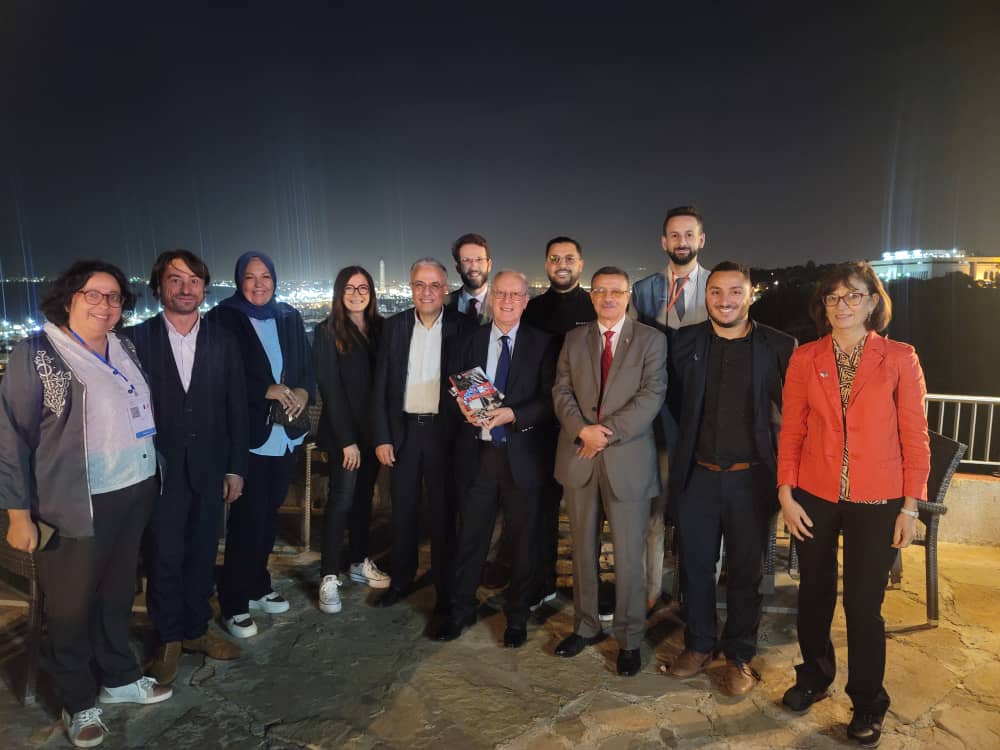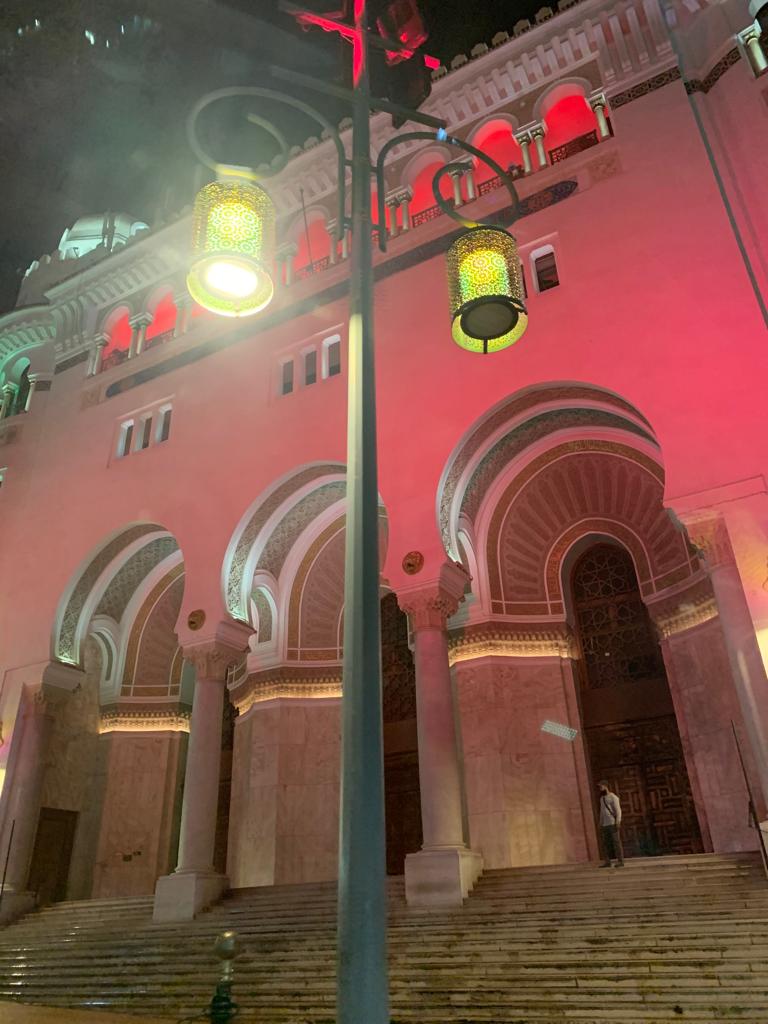- Blog
ECONOMIC MISSION TO THE EXHIBITION OF INDUSTRIAL SUBCONTRACTING in Algiers
#ALGEST is organized by the Algerian Stock Exchange of Subcontracting and Partnership in collaboration with the WTC Algiers, under the patronage of the Algerian Ministry of Economy.
This exhibition of industrial subcontracting is a tool for business networking that serves thenational strategy of increasing the power of the industry sector in the economic performance of the country. The goal is to maximize the industrial integration.
The WTC Metz-Saarbrücken delegation represented the Metz Eurometropolis as well as its attraction agency Inspire Metz, the IHK Saarland, companies from the Greater Region such as Commet Group, Belgatrans and Création Durable.
Let us underline the support of the Algerian Consulate in Metz for the facilitation of obtaining visas in a short time.
The objectives of the mission were multiple:
- To acquire reliable and detailed information on the business context in Algeria, on the current legislative framework concerning import-export and the establishment of foreign companies in Algeria.
- New laws on FDI
- To put in contact companies looking for a diversification of their sourcing with industrial subcontractors
- To encourage new partnerships between local SMEs and foreign companies.
-
Legal framework and incentives:
Presentation of the Algerian Ministry of Economy.
Since January 2017 the legislative framework favors the development of SMEs and aims to improve the industrial integration rate at the national level as well as the promotion of subcontracting through, in particular, the implementation of modernization programs.
Greater clarity has been provided in terms of sourcing and imports since 2020 by a decree on the exemption from customs duties and VAT for components and raw materials, imported or acquired locally by subcontractors. This applies to the mechanical, electronic and electrical industry sectors as well as to the maintenance of production equipment in all sectors.
However, there is still an identified obstacle to the principle of integration.
Indeed, the tax exemptions apply to 2 conditions:
- Imported components and raw materials must undergo industrial processing (excluding finished products)
- The company consuming these components and raw materials must first reach a minimum industrial integration rate of 40%.
This support mechanism must be renegotiated with a view to expanding it. This would include a downward revision of the integration level or a redefinition according to a progressive implementation schedule, e.g. 15% at the start of operations and progression over 5 years to 30-40%.
Projects with 100% foreign capital now seem to be admissible subject to the integration rate.
These new measures will therefore be an additional incentive for foreign companies to come and set up shop - not to mention Algeria's undeniable competitive advantage on the cost of energy.
-
Our analysis of the growth sectors:
The WTC had the opportunity to exchange with many exhibitors, Algerian industries of all sizes as well as the Local Development Bank and other actors of economic promotion.
The automotive sector is identified by the Algerian Ministry of Economy as strategic. The objective is the development of a real automotive industry with an integration rate of 40% minimum at the end of the 5th year of operation.
This strategy can represent an investment opportunity for our equipment manufacturers in the so-called "subcontracting" sectors such as electricity, electronics, rubber, injected plastics, batteries, paints and solvents, glazing, etc.
It will be important to raise awareness among the automotive suppliers in our territory by making this information available to them.
-
Professional and continuing education:
Algeria has a notable deficit of technical training courses to implement the strategy. This component will be a key element in the development of a fabric of IPT and local SMEs.
Other sectors have strong development potential, notably services such as transport and logistics, services to industry (NDT and other trades in the extractive and hydrocarbon industries, packaging, agri-food and health/pharmaceutical industries), waste collection and treatment, and the circular economy.
Alternative and decarbonated energies are undeniably a huge development axis, driven not only by the problems of protecting the Planet but first of all by the country's "Gas" strategy.
Modelling of overall domestic gas consumption in the country predicts an explosion in the next 5 to 15 years, mainly due to economic growth in all sectors - bearing in mind that the majority of energy used in Algeria is supplied by gas resources, which also feed power plants.
This phenomenon, if not rectified, would lead to a massive reduction in the quantities of gas available for export, with the corollary of a massive drop in foreign exchange earnings.
The government is therefore considering a new distribution of gas uses in the future. This involves a major strategic change in local energy production: renewable energies will be strongly favored for domestic consumption.
In the long term, gas reserves will be used primarily for export.
At Algest, we were able to meet with players in the photovoltaic energy sector, who confirmed this line of development.
Algeria has vast areas that could be exploited for the production of solar and wind energy.
Hydrogen is also a priority R&D topic in Algeria.
The production of "green" hydrogen is a large consumer of water and electrical energy. These 2 resources are available in Algeria, the cost of electrical production (based on the price of Algerian gas) is very competitive compared to Europe.
These assets give Algeria extremely favorable conditions to develop a leadership in this field.
R&D to be considered, TT, academic partnerships and continuing education;
Search for engineers (PV panels).
-
Avenues to explore:
The WTC Algiers and the Subcontracting and Partnership Exchange are our privileged interlocutors.
We noted a good national Algerian participation in the show, which can certainly be improved but which already offers opportunities to work together, with foreign suppliers and investors (state-owned companies, private companies, companies of the Army).
Algeria has competitive advantages, including the cost of energy: it is now possible and appropriate to co-invest in energy consuming industries. For example, the rise of Algerian cement manufacturers who have made a breakthrough on the European market from the year 2019, becoming the 2nd supplier of cement to the EU in 2021, with a market share representing 11% of imports of hydraulic cements in the EU.
A relationship with the Grand Est and Metz to be consolidated thanks to the Air Algérie Metz-Alger airline and with Air Algérie Cargo for the freight part.
In the current business context, France has a place to (re)take because of the blockage with Spain and the ban on importing inputs for political reasons.
For more information:
https://dz.ambafrance.org/Les-relations-economiques-2462
Outlook 2023 - planned follow-up by WTC MS:
- Participation of a collective of Algerian companies at the GLOBAL INDUSTRIE exhibition in Lyon in March
- Reception in Metz of the WTC Algiers to inform on the regulatory framework, the markets and opportunities to study at the beginning of the year and testimonies of French companies which work with Algeria or are established there.
- Preparation of a collective of metropolitan/Moselle/cross-border companies to participate in ALGEST in November 2023.
A big thank you to the Algerian Stock Exchange of Subcontracting and Partnership and to the team of the WTC of Algiers for their invitation and their warm welcome in a professional and efficient environment.
File followed by :
Evelyne PELLE, Cross-border and international project manager
Tel : 0033 (0)6 35 52 83 01



